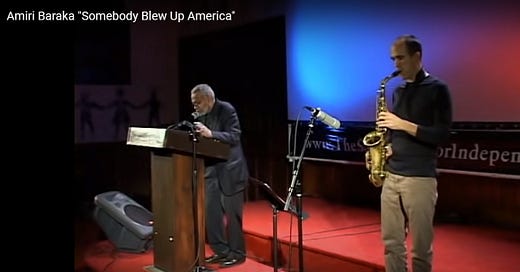How Should We Celebrate MLK Day?
Probably not as it's done on college campuses, where we discuss the work of hateful anti-American writers and advocate for the revolutionary abolition of police
[How my campus is celebrating: A commemoration of the radical writer Amiri Baraka, author of “Somebody Blew Up America,” an anti-white, anti-Semitic, anti-American screed he wrote in the wake of the 9/11 attacks, and other such literary works]
This just posted at The American Mind. Slightly longer version below, with more quotation from Baraka’s hateful,…




